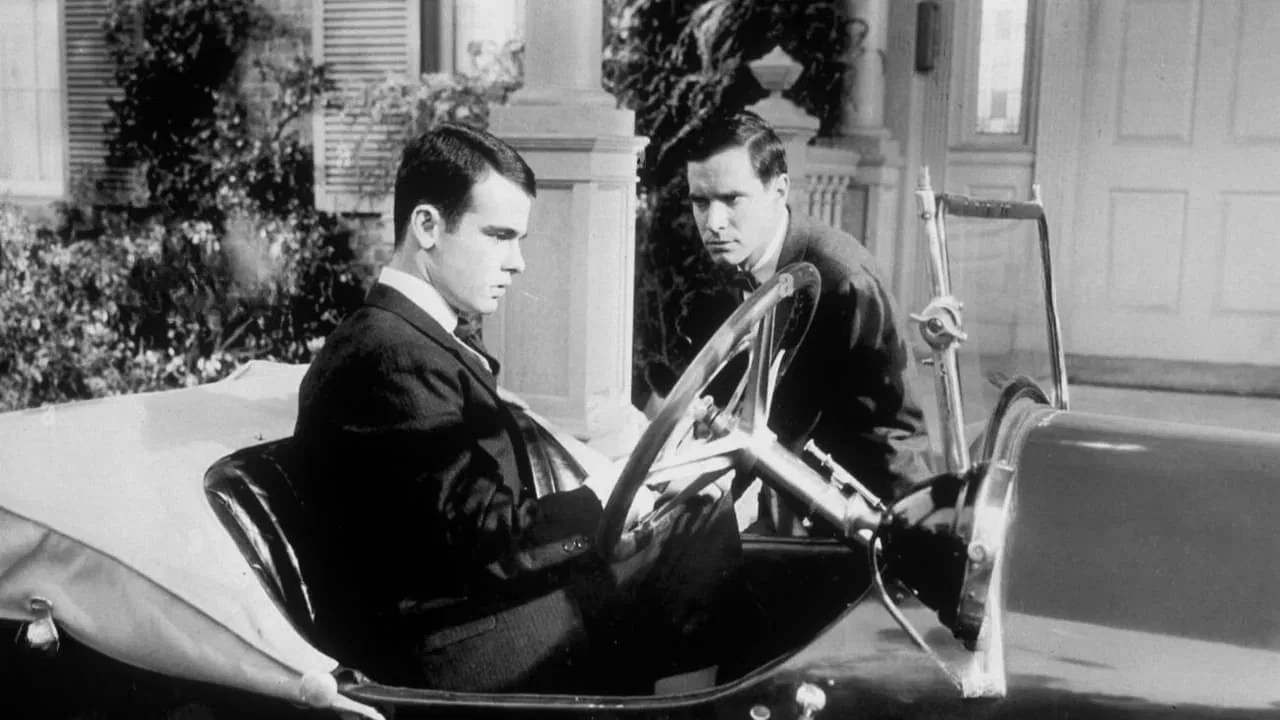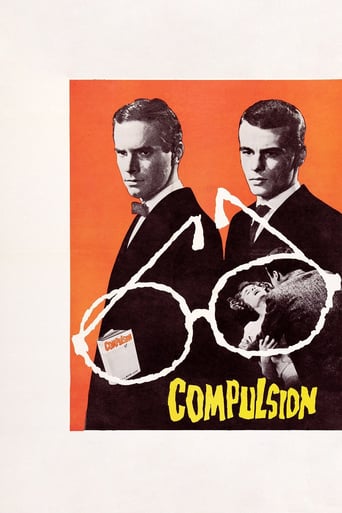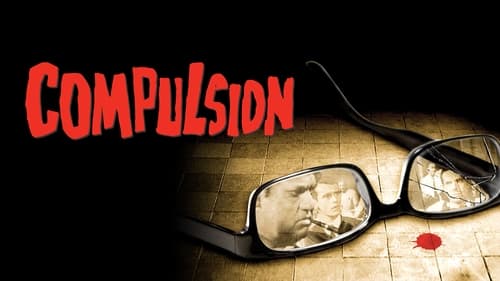



Too many fans seem to be blown away
The greatest movie ever!
Amateur movie with Big budget
I am only giving this movie a 1 for the great cast, though I can't imagine what any of them were thinking. This movie was horrible
View MoreIt's 1924 Chicago. Rich law students Artie Strauss (Bradford Dillman) and Judd Steiner (Dean Stockwell) steal from their fraternity. Artie orders Judd to run over a drunk in the road. He misses. Artie wants to continue with his crime spree and Judd begs to join him in a well thought out dangerous plan to gain infamy. Judd is a bitter intellectual and Artie is a brash extrovert. They commit the 'perfect' crime killing a boy but their acquaintance rookie investigative reporter Sid Brooks finds Judd's glasses at the crime scene. Artie pushes Judd to attack Ruth Evans but he stops in time. Their crime unravels with the mounting evidence and the boys talking. Their families hire famed defense attorney Jonathan Wilk (Orson Welles) to battle D.A. Horn (E.G. Marshall).These two guys are compelling characters. At times, their obsessive relationship hints at homosexuality while other times, it is all intellectual psychopathic banter. They could have heightened the bloody violence a bit more. Orson Welles doesn't show up until after over an hour. He does an interesting performance but it is the young men that are the most fascinating.
View MoreAs a result of his handling of this film, Director Richard Fleischer either inherited a reputation for his skill at telling stories about flawed murderous characters or he was attracted to the subject (The Boston Strangler" in '68 ~ "Ten Rillington Place" in '71) Whatever the driving forces he surely displayed a natural talent to examine, and chill, within the genre. What 'Compulsion' achieves is certainly compelling viewing.With its basis in shocking fact this movie works on several levels.Firstly: as a denouncement of certain teachings found within educational institutions on the writings of German post modernist philosopher Friedrich Nietzsche. In this instance by examining his theories that certain members of the human race are, by benefit of their advanced knowledge, and superior intellect, above the law of the 'common' people. He regarded these as the 'Superhumans'. Its even possible this philosophy and his 'will to power' could arguably be attributed to the actions of certain members of the ruling class, perhaps even forming part of the disastrous 'causes' of World War 1, etc (as a contributing force behind the philosophical reasonings of the day)The characters that form the homosexual duo of this shocking case are representational of the 'Crime of the Century' murderers: Leopold and Loeb. Both sentenced to Life + 99 years for the senseless killing of 14yr old Bobby Francis (2nd cousin of Loeb). Their reason for the murder? the thrill of performing the 'perfect' murder based on the repugnant belief of their own 'superior' Nietzscheian intellect! Secondly: as an argument against capital punishment. The parents of Loeb commissioned the services of renowned criminal attorney Clarence Darrow (Orson Wells) who was championing the case against the death penalty. His brilliant courtroom speech is regarded by some as one of the most important turning points in redemptive sentencing. This humanitarian reverse reasoning has proved beneficial in several cases, but how does it hold up within the framework of this modern era? Some contemporary viewers might bring into question the growing number of people who fall victims to murderous criminals - following their re-release into society as being 'CURED' - Sadly this number would appear to be larger each year. When this is considered, along with the rapidly growing number of serial murderers now held in 'corrective' services, it invites the question...if proved guilty beyond doubt, and never to be released, is this then worthy of the very large resources involved?. Difficult situation. The performance of Dean Stockwell (as the Leopold character) is quite astounding, as are all the superb players in this stark drama. Somewhere along the way it would seem some character details, either within the screenplay or the novel, have perhaps been transposed differently from the claims of the real participants and various reports ~ but this tends to occur with many transcriptions of factual events. Oscar winning veteran director of photography: William C. Mellor: earlier known for the good looking "Reaching for the Sun" '41 ~ "Bad Day at Black Rock" '55 ~ "Giant" '56, captures all the tension in striking B/W CinemaScope. Boston born screenplay writer Richard Murphy in the same year adapted Paul Muni's final movie: "The Last Angry Man" for the screen and is also known for, "Les Miserables" '54 ~ "Panic in the Streets" '50 ~ "Deep Waters" '48. His screenplay was based on the novel of the same name by Meyer Levin, writer and producer of "My Father's House" in '47. Director Fleischer a few years later would give us "Barabbas" '61 and "The New Centurions" '72. He begun in the early 40's working on fast paced RKO supports like the acclaimed "Narrow Margin" '52.My brother in law made me a present of a superbly re-mastered DVD, so for those interested in thought provoking stories based on factual crimes, this comes recommended. KenR
View MoreI was mostly going through a youtube movie streak when I ran into this gem. The movie seems to be broken up into two parts, the first is an exploration of the motives and guilt of the two main characters who have committed an atrocity. Oddly enough for the horrific characters that they are, I found that I was not outright rooting for their fall which is quite an achievement in my eyes. Regardless, this part of the film is interesting in terms of character motifs but perhaps a little too linear in its uncovering.The second part of the film is when their lawyer, Orson Welles comes in to defend them. At first it seems very odd and bureaucratic as a procedure but ultimately pays off with a quite raw and dramatic court room scene at the end of the film which is probably the most powerful part of the movie.Regardless of how good the movie is, I would recommend this film just because of its structure, even though there is less of an emotional impact this way, I feel like it achieves something else. Instead of focusing on pulling us to identify or feel their sorrow we are invited to think critically about the paradoxical nature of the death penalty.
View MoreCompulsion (1959) *** (out of 4) Law students Judd Steiner (Dean Stockwell) and Arthur Straus (Bradford Dillman) kill a young boy just to see what murder is like. The two think they're smart enough to get away with it but the local D.A. (E.G. Marshall) finally busts them for it and plans on seeking the death penalty but a successful and popular lawyer (Orson Welles) decides to take the case to try and save their lives. COMPULSION is loosely based on the Leopold-Loeb murder case, which was also previous told by Alfred Hitchcock in his underrated ROPE. I personally think the Hitchcock film is much better but this one here is still very much worth watching thanks in large part to the terrific performances. I think the film's story is mildly entertaining but it never fully grabbed me. I think part of the reason it didn't is that the opening hour just isn't strong enough to fully make us hate these two characters. I know that might sound weird to say but I think the film needed us to have some sort of stronger feelings about the two boys. I also think it would have been better had the film explained a bit better why these two decided to murder like they did. With that said, the film really picks up speed during the final forty-minutes and especially once Welles enters the picture. His entrance is certainly very memorable but the actor also turns in one of his greatest performances because of how cool and laid back he is. The final monologue has become somewhat legendary and for good reason. I've seen enough courtroom dramas to know how most people would have placed this but the way Welles does it is just a complete joy to watch. Both Stockwell and Dillman are also extremely good in their roles. There's not a single second that goes by that you don't believe them in the parts and best of all is how they manage to get that coldness of their characters across. Marshall also deserves a lot of credit for his strong performance. The film's B&W cinematography is also extremely good and director Richard Fleischer handles the material with no problem.
View More